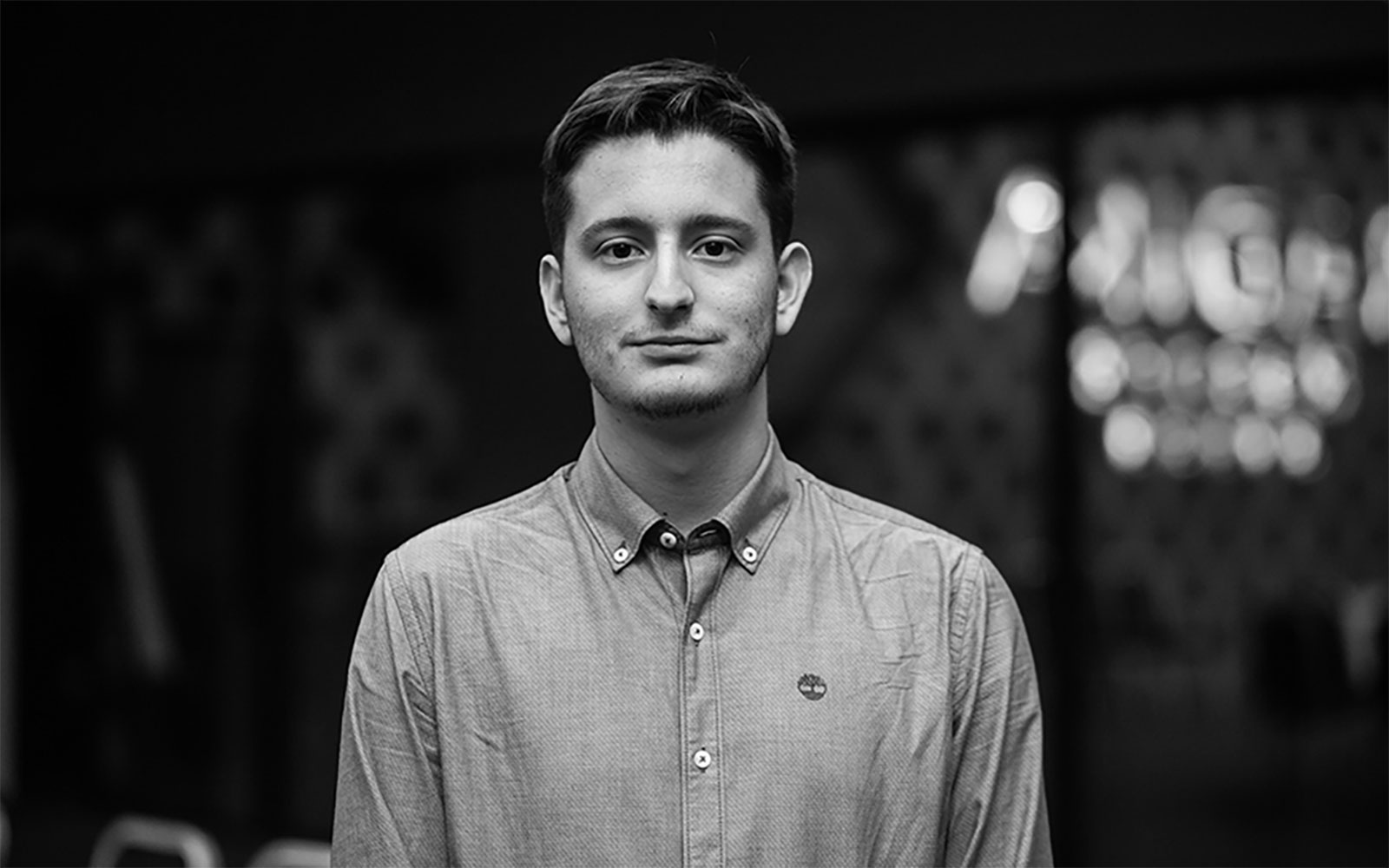
Blendi Hodai is one impressive young man. An activist since the age of 13, and a self-described ‘unshakeable optimist’, he foresees a bright future for North Macedonia with young people as the creators of this future. He believes that education and democracy are intrinsically interlinked: if young people are to become active citizens, they must be active and engaged in their educational experiences.
A native of Tetova, North Macedonia’s third largest city, Blendi was still in primary school when he got his first taste of activism. Tetova was then the most polluted city in the country. Citizens organised protests in the city, eventually forcing the closure of a factory causing the air pollution and Blendi helped organise protests at his primary school. The ruling political party at the time accused the protesters of having political rather than environmental motives. For Blendi, these protests were an eye-opener.
“All of us breath the same air. I understood that everyone of us needed to become engaged,” he says.
Today, Blendi is the founder and executive director of the Forum for Educational Change (FECH), a grassroots civil society organisation focused on higher education in North Macedonia. Just 19 when he founded FECH, this is Blendi’s second social entrepreneurship project. As a secondary school student, he co-founded the High School Students Union, following a stand off between students and the school principal about a school trip.
“Democracy starts at school,” he says. “That’s the first time you learn about democracy, democratic values and transparency… We realised that as young people and students we could have power and we could address our concerns. We decided to establish a student movement to address these concerns and to act as a partner in the reform of the educational system.”
This was the first such student movement in the country; importantly, the union includes students of all ethnic, religious and economic backgrounds. The movement has proposed various reforms to modernise the highly traditional schooling system, including a reform to the final secondary school exam. Blendi believes that engendering a ‘can-do’ approach among young people is essential.
It was inevitable that when Blendi began his university studies in Skopje, he would turn his attention to the higher educational sector. An EED grant enabled him to establish the Forum for Educational Change in October 2021 with a group of other young people, with the aim of improving the quality of higher education, empowering university students. Based in Tetova, FECH works with all five public universities in North Macedonia.
Through FECH, Blendi is now addressing what he views as the most pressing challenges facing the higher educational sector.
“Our initiative DigiU is advocating for the digitalization of universities,” he says, explaining that universities still use a cumbersome paper system for grading and that few university professors use e-learning platforms.
FECH together with the Students Parliaments recently succeeded in changing the law on student meal vouchers following a sustained lobbying campaign. Previously these were set at €1.7 per day. Following an advocacy campaign, they succeeded in increasing this to €3, with the proviso that it will rise according to inflation in future years.
Another important focus for FECH is combatting corruption in the sector. Plagiarism is a huge challenge in North Macedonian universities, with many university professors’ advanced degrees awarded despite doctoral theses containing high levels of plagiarism. “It’s an modus operandi here, most of the professors have done the same thing,” he says. A national multi-million Euro anti-plagiarism platform a decade ago is not fit for purpose.
He explains that in a country where the public has low trust in government and all public institutions, including the educational sector, this is an important battle to fight and FECH is already making progress.
“It is important to change mentalities. Plagiarism is an unethical way to advance academically. We are changing things. They cannot undermine us anymore. We have public trust, and citizens understand we should all speak up and take measures against this,” he says. FECH has attracted significant media attention to this issue, and it is now advocating for new vetting procedures during the recruitment of university professors.
As part of the EED grant, FECH have also opened a youth centre in Tetova, where young people can meet, they can hold workshops, roundtables, show movies and host post-movie discussions and run other activist-related activities for students. This is one of the few places where the 18,000 students of the city can gather.
“Our aim is to try to develop critical thinking among young people,” says Blendi of the centre, “Everyone says that young people are the future, but no one gives them the time or resources to prove themselves. Young people are creative, but to see their creativity, you need to give them the opportunity to prove themselves.”
He compares his work to a game of tag. “As activists, we need to constantly tag more people. We need them to become engaged in society, to identify problems and together we can work for change.”
Blendi believes that by empowering young people and helping them to believe in a future at home, North Macedonia may also begin to address the brain drain of educated young people to Europe. “I always say to people that the day North Macedonia joins the EU, Skopje won’t turn into Paris overnight. It’s not a magic wand. We, the citizens of our country, need to start by helping ourselves. We need to become engaged and contribute to our community. Maybe it’s idealistic and utopic, but there is no other way,” he says.
This article reflects the views of the grantees featured and does not necessarily represent the official opinion of the EED.